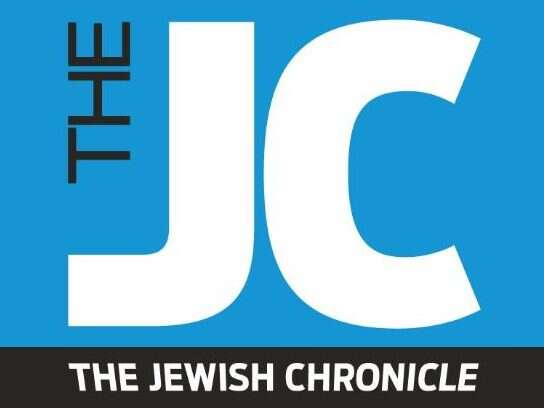
The Jewish Chronicle has been ordered to publish a 1,300-word adjudication by press regulator the Independent Press Standards Organisation after it failed to produce evidence to support claims it made about a Labour activist.
IPSO’s Complaints Committee ruled that the Chronicle breached accuracy guidelines under the Editors’ Code of Practice in four articles published in print and online in February and March this year.
The articles, which reported on a “plot to oust” ex-Labour MP Louise Ellman – who stood down this year – and allegations she had been “bullied”, made a number of claims about activist Audrey White.
The newspaper claimed:
- That White had been “expelled” from Labour in the 1980s and subsequently “lied” about her date of birth in an application to rejoin the party in 2015 when Jeremy Corbyn emerged as its leader
- That she had been “amongst a group of militants who repeatedly interrupted” Ellman while she delivered a speech at a local Labour Party meeting
- That White had “received a number of formal warnings” from Labour over “allegations of bullying against party members”
- That White had “falsely claimed that a Labour councillor was under investigation by the police for having ‘cruelly taunted’ a ‘disabled pensioner suffering from cancer’”
- That White had been a member of the Socialist Party.
White denied all the above allegations in her complaint to IPSO.
On the first point, an email from the Labour Party, submitted by White, showed there had been “no change” to her membership, which has her correct date of birth, and that the party was unable to find evidence of her previous membership or expulsion from the party.
The Chronicle said it had relied on confidential sources for the claim.
But IPSO’s Complaints Committee said the newspaper “had not taken any additional steps to investigate or corroborate the source’s claim” about White’s reported expulsion “nor had it produced any evidence to support this easily verifiable claim”.
The committee said the Chronicle had also failed to provide evidence of the claim that White had falsified her date of birth when reapplying to join the party. IPSO ruled a breach of Clause 1 (accuracy).
“The combination of these two claims, and their adoption by the publication as fact, gave rise to the clear impression that the complainant, in her recent dealings with the Labour Party, had acted with an intention to deceive,” the committee said.
The Chronicle’s failure “to correct these significantly misleading claims” upon receiving an email from the Governance and Legal Unit of the Labour Party was also a breach of Clause 1.
On the second point, the committee listened to a partial recording of the constituency meeting provided during IPSO’s investigation and found that Ellman had “spoken in a consistent and conversational tone – the crowd had not been ‘rowdy’, as alleged”.
It said a statement provided by the newspaper “supported the complainant’s position that she had responded to an open invitation to ask questions”. It ruled a breach under Clause 1. Failure to issue a correction represented a second breach under Clause 1.
On the third point above, the Chronicle provided IPSO with a letter from the Labour Party in which White had been issued with a formal warning regarding her conduct.
It said her comments and actions had “caused offence” and “upset and distress” to the individuals concerned.
IPSO said it was therefore not inaccurate to report this as an allegation of “bullying” but said the newspaper failed to provide further evidence to support its claim that White had received a “number” of warnings following allegations of bullying.
“The single letter produced by the newspaper did not support this claim,” said the committee, which ruled a breach of Clause 1.
“To report that the complainant had received multiple warnings from the Party was significant, as it gave credibility to a central thrust of the articles, which was that the complainant’s conduct in relation to her dealings with individuals within the Labour Party had consistently fallen below the standards expected,” said the committee.
Failure to issue a correction was a further breach under Clause 1.
On the fourth point above, White provided IPSO with correspondence between the alleged victim and the Hate Crime Support Service, which referred it to police. IPSO said therefore that White’s claim about the councillor was “plainly not ‘false’”.
It said the Chronicle had published a claim “the accuracy of which it could not defend”, resulting in a breach of Clause 1.
“The articles’ claim that the complainant had made ‘false’ allegations concerning the actions of the police, was significant given its seriousness, and furthered the misleading impression of the complainant’s conduct towards Labour politicians,” the committee said.
Failure to issue a correction was a further breach of Clause 1.
Finally IPSO said the newspaper had “produced no evidence” to show that White had been a member of the Socialist Party and said showing support for its values was not the same as showing support by way of membership.
It ruled it was a further breach of Clause 1 and a further breach for failing to issue a correction.
The committee also said it had “significant concerns about the newspaper’s handling of this complaint”, adding that the Chronicle had “failed, on a number of occasions, to answer questions put to it by IPSO and it was regrettable the newspaper’s responses had been delayed”.
The committee said the Chronicle’s conduct during IPSO’s investigation was “unacceptable”. IPSO’s standards department has been made aware.
The Chronicle has published the full IPSO adjudication online.
Email pged@pressgazette.co.uk to point out mistakes, provide story tips or send in a letter for publication on our "Letters Page" blog
